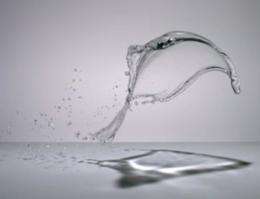European countries measure water quality in different ways

European Union member states are obliged to monitor the water quality and the effects of their manure policy on that quality, and to report on these aspects to the European Commission. It appears that the countries concerned interpret this obligation differently due to a lack of specific provisions or regulations.
This is one of the conclusions of research carried out by LEI, part of Wageningen UR, and the RIVM together with the Danish National Environmental Research Institute (DMU) and the Geological Survey for Denmark and Greenland (GEUS). A further finding is that most countries have invested in an expansion of water-quality monitoring activities over the past six years. This expansion came about as a result of a discussion between the member states and the Commission regarding the way in which the manure policy needed to be structured. Member states try to substantiate their positions on this by means of additional monitoring.
Another reason for more extensive monitoring is the fact that member states that only recently acceded to the European Union need to modify their monitoring systems to the guidelines. Twelve countries from north-western and central Europe took part in the study.
More information: www.rivm.nl/bibliotheek/rapporten/680717019.pdf
Provided by Wageningen University















